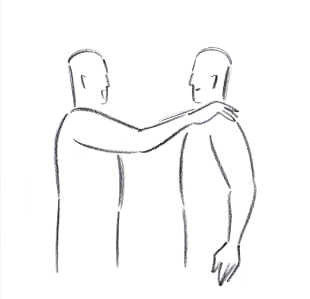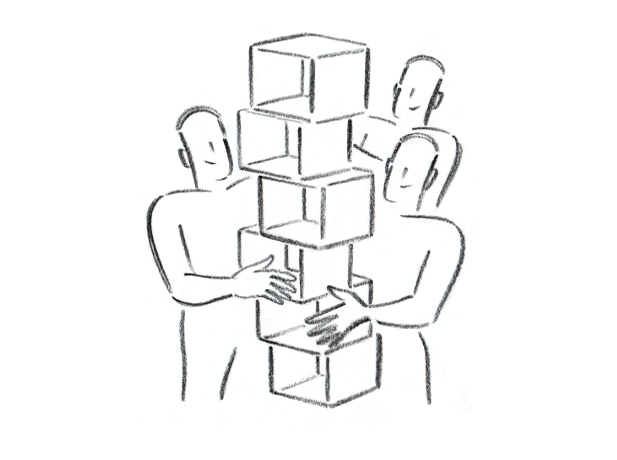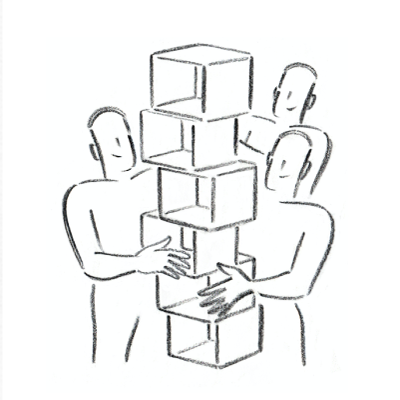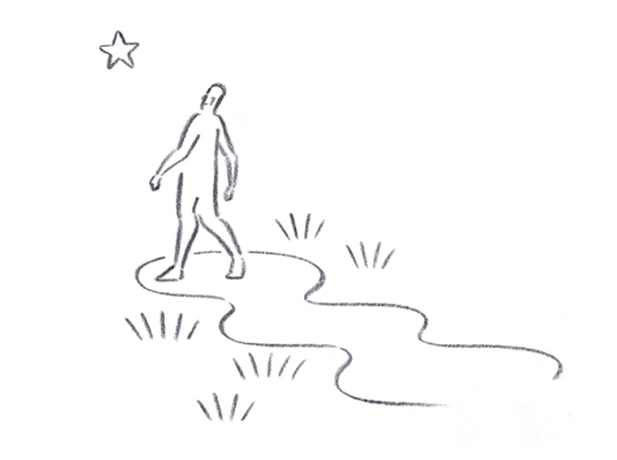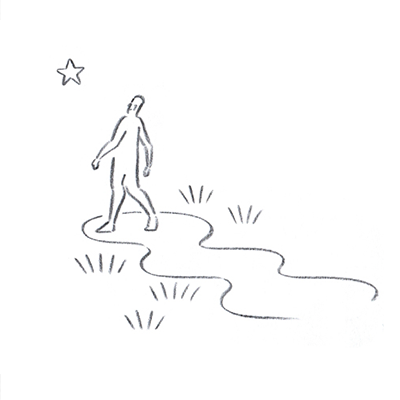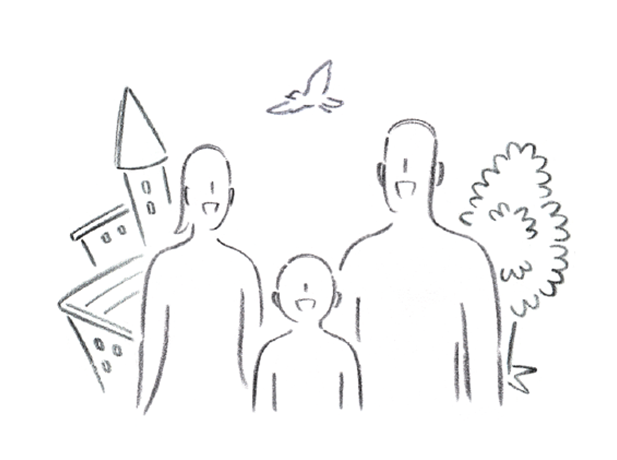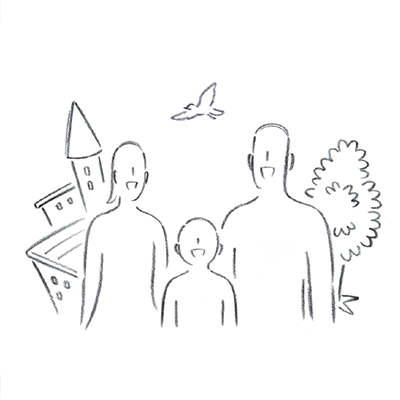The Tohoku earthquake and tsunami struck on March 11, 2011.
On seeing the unprecedented damage, DENSO jumped into immediate action.
On seeing the unprecedented damage, DENSO jumped into immediate action.
"We will provide
the utmost support
we can as a company."
Upon this message from Nobuaki Kato, the company's president at the time, DENSO's buildings in Fukushima Prefecture were offered as an evacuation center three days later, and daily necessities were distributed to victims.
In all, over 700 employees were dispatched to Ishinomaki to engage in the removal of rubble and mud at the site.
While providing this support, at the same time, various areas of the company are also said to have struggled to keep customer production lines from being stopped.
In all, over 700 employees were dispatched to Ishinomaki to engage in the removal of rubble and mud at the site.
While providing this support, at the same time, various areas of the company are also said to have struggled to keep customer production lines from being stopped.
Among DENSO's suppliers as well, some 370 factories were hit.
The damage was especially great at the Naka Plant of Renesas Electronics, which makes microcomputers and system LSIs for car-navigation equipment.
Restoring the production line to operation was predicted to take half a year.
The damage was especially great at the Naka Plant of Renesas Electronics, which makes microcomputers and system LSIs for car-navigation equipment.
Restoring the production line to operation was predicted to take half a year.
The damage to the automotive and home-appliance industries was immeasurable.
Considering the weakened strength of small- and medium-size enterprises in particular, waiting half a year would be difficult.
The DENSO workers dispatched to the local area in aims of effecting recovery as quickly as possible saw with their own destruction that was beyond all expectation.
Considering the weakened strength of small- and medium-size enterprises in particular, waiting half a year would be difficult.
The DENSO workers dispatched to the local area in aims of effecting recovery as quickly as possible saw with their own destruction that was beyond all expectation.
The rooftop ductwork was damaged, and outside air and rainwater had gotten inside the clean rooms.
Powdered chemicals inside the ducts were mixed with water droplets, creating danger of burns.
Powdered chemicals inside the ducts were mixed with water droplets, creating danger of burns.
Amid this, it was decided to shorten the predicted half-year restoration time to about one month, and so both safety and speed were demanded.
The DENSO employee heading the restoration team for air-conditioning equipment summoned six air-conditioning companies that had raced to the scene.
"Keep the work on schedule at all costs.
And don't ever let even
a single person get hurt."
Notices of what each firm was to do and progress reports were posted, and report meetings were held every three hours.
When delays occurred, other companies would make adjustments and provide backup support.
All of the roughly 300 workers were made thoroughly aware of knowledge about chemical agents, and the workers looked out for the safety of one another.
When delays occurred, other companies would make adjustments and provide backup support.
All of the roughly 300 workers were made thoroughly aware of knowledge about chemical agents, and the workers looked out for the safety of one another.
When one company would say that its ten people had been working straight through and needed rest, another firm would offer to add 20 more people the following day.
The group joined hands
to accomplish a common goal.
Cooperating in this way,
they were truly one team.
As a result of establishing a work system that was smooth and safe, test-runs of the production line were begun on April 23, just 42 days after the disaster.
The first lot produced at that time was named "kizuna" – "solidarity."
The first lot produced at that time was named "kizuna" – "solidarity."
This is all thanks to DENSO.
If anything bad happens to you, we will be there to support you.
The gratitude of the Renesas workforce was tremendous.
If anything bad happens to you, we will be there to support you.
The gratitude of the Renesas workforce was tremendous.
A look back at the post-disaster response shows that not only the employees who rushed to the site but also all areas of the company cooperated to confront with boldness the ravages left by the unprecedented disaster.
When all come together in a single spirit and expend every effort to do what needed to be done, great barriers can be overcome through team effort.
The Spirit Connected with This Episode
Spirit 1
CollaborationCommunication
Understand one another completely
Spirit 2
CollaborationTeamwork
Do your best as a team
Spirit 3
ForesightChallenge
Overcome difficulties

